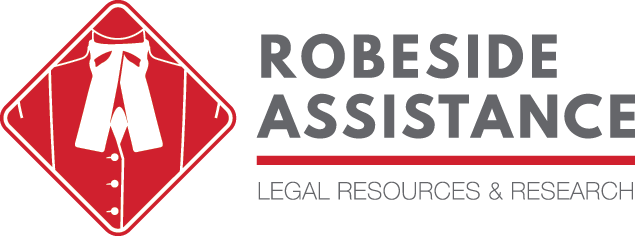by Katie Tribe
As mentioned in past posts, at the library we spend a considerable amount of time helping people locate cases. Through time and repetitive use, we really get to know some of the nooks and crannies of our electronic database (think Quicklaw, Westlaw, Criminal Spectrum, O’Brien’s), and notice and appreciate when subtle changes are made that make searching swifter and more effective. One of our products, Westlaw Canada, has created a few new features over the past month or so that are really making us happy. Here’s a list so that you can start noticing and taking advantage of them as well!
1. Displaying the citation frequency of cases
Everyone knows the pain of having to browse through a large number of search results to find one powerful case. Westlaw recently made it easier to identify significant cases by displaying the amount of times the case has been judicially considered in the search results. When browsing the results, you’ll now see a note in brackets at the bottom of the case summary that states how many times the case has been considered, making it easy to determine its precidential value. The citation frequency is also listed after cases that show up in the citation list when you note up a case.
Westlaw also now allows you to limit your searches to cases that have been judicially considered. In the same way that you can limit cases by jurisdiction, timeline, and decision type, you’ll now find a drop down menu for citation frequency on the search screen. Pretty awesome!
2. Rules Concordance
I’m not sure how long this feature has been around, but it’s one that we’ve noticed and taken advantage of recently because a client was trying to locate an equivalent family law rule in a different jurisdiction. You’ll find the Rules Concordance in the “Browse Table of Contents” section of the main Westlaw page. It’s organized by subject areas that you can browse by expanding folders, much like other Westlaw Products such as the Canadian Encyclopedic Digest (CED). Browse through the subject areas to find a complete list of rules related to your subject, separated by jurisdiction. Of course, the list includes hyperlinks that will take you to the full text of the rule you’re interested in.
3. ResultsPlus
Another new feature, ResultsPlus, suggests related analytical material (think links to secondary sources like the CED) next to your search results. If you view your search results in full screen mode, you’ll see ResultsPlus to the right of your search results. If you’re not in full screen mode, you can access it by clicking the tiny arrow in the upper right hand corner of your screen. When you are viewing an individual case, the ResultsPlus information will be listed under the “Related Info” tab on the left side of your screen. To refresh your memory, the Related Info tab is also where you’ll find links to the history of the case and any citing references. I haven’t used the ResultsPlus feature yet, but will definitely be checking it out, as I often find the best cases when using tools like the CED.
4. “Related Terms” and “Did you mean…?”
In a step towards the style of the powerful search engines we use on a daily basis (I’m obviously referring to Google here) Westlaw has added features that suggest related terms and notice spelling errors when you type in a search. If you are using search terms to find cases, you’ll now find a related terms box at the top of your full screen results page, listing related terminology that Westlaw will easily add to your search with a simple click. The related terms box will also show up on the main search page when you edit your search. Like Google, Westlaw will also now notice your spelling errors and suggest a different word at the top of your results list.
In life and in researching, it really is the little things that make the biggest difference. Thanks to Westlaw for making things a little bit easier for us with these new features; we hope that you’ll check them out! As always, if you need help locating or using these new tools and features, please don’t hesitate to ask us for help.
